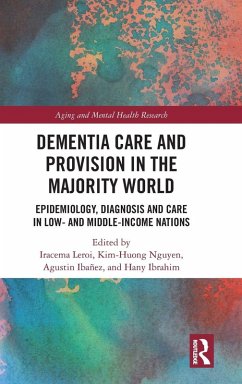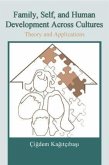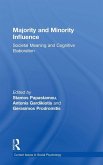Dementia Care and Provision in the Majority World
Epidemiology, Diagnosis and Care in Low- and Middle-income Nations
Herausgeber: Leroi, Iracema; Ibanez, Agustin; Nguyen, Kim-Huong
Dementia Care and Provision in the Majority World
Epidemiology, Diagnosis and Care in Low- and Middle-income Nations
Herausgeber: Leroi, Iracema; Ibanez, Agustin; Nguyen, Kim-Huong
- Gebundenes Buch
- Merkliste
- Auf die Merkliste
- Bewerten Bewerten
- Teilen
- Produkt teilen
- Produkterinnerung
- Produkterinnerung
This novel volume offers a comprehensive examination of dementia epidemiology, diagnosis, and care across lower- and middle-income countries, in particular exploring diverse and culturally inclusive perspectives on understanding, diagnosing, and managing dementia.
Andere Kunden interessierten sich auch für
![Family, Self, and Human Development Across Cultures Family, Self, and Human Development Across Cultures]() Cigdem KagitcibasiFamily, Self, and Human Development Across Cultures221,99 €
Cigdem KagitcibasiFamily, Self, and Human Development Across Cultures221,99 €![Family, Self, and Human Development Across Cultures Family, Self, and Human Development Across Cultures]() Cigdem KagitcibasiFamily, Self, and Human Development Across Cultures178,99 €
Cigdem KagitcibasiFamily, Self, and Human Development Across Cultures178,99 €![Majority and Minority Influence Majority and Minority Influence]() Majority and Minority Influence176,99 €
Majority and Minority Influence176,99 €![Care-Giving In Dementia 2 Care-Giving In Dementia 2]() Care-Giving In Dementia 2143,99 €
Care-Giving In Dementia 2143,99 €![Provision of Psychosocial Support and Education of Vulnerable Children Provision of Psychosocial Support and Education of Vulnerable Children]() Provision of Psychosocial Support and Education of Vulnerable Children151,99 €
Provision of Psychosocial Support and Education of Vulnerable Children151,99 €![Provision of Psychosocial Support and Education of Vulnerable Children Provision of Psychosocial Support and Education of Vulnerable Children]() Provision of Psychosocial Support and Education of Vulnerable Children191,99 €
Provision of Psychosocial Support and Education of Vulnerable Children191,99 €![The Brain and the Inner World The Brain and the Inner World]() Mark SolmsThe Brain and the Inner World150,99 €
Mark SolmsThe Brain and the Inner World150,99 €-
-
-
This novel volume offers a comprehensive examination of dementia epidemiology, diagnosis, and care across lower- and middle-income countries, in particular exploring diverse and culturally inclusive perspectives on understanding, diagnosing, and managing dementia.
Produktdetails
- Produktdetails
- Verlag: Routledge
- Seitenzahl: 278
- Erscheinungstermin: 20. November 2025
- Englisch
- Abmessung: 240mm x 161mm x 20mm
- Gewicht: 584g
- ISBN-13: 9781032865706
- ISBN-10: 1032865709
- Artikelnr.: 74778599
- Herstellerkennzeichnung
- Libri GmbH
- Europaallee 1
- 36244 Bad Hersfeld
- gpsr@libri.de
- Verlag: Routledge
- Seitenzahl: 278
- Erscheinungstermin: 20. November 2025
- Englisch
- Abmessung: 240mm x 161mm x 20mm
- Gewicht: 584g
- ISBN-13: 9781032865706
- ISBN-10: 1032865709
- Artikelnr.: 74778599
- Herstellerkennzeichnung
- Libri GmbH
- Europaallee 1
- 36244 Bad Hersfeld
- gpsr@libri.de
Iracema Leroi is Professor in Geriatric Psychiatry, Trinity College Dublin (TCD), Ireland, Director of the Global Brain Health Institute (Trinity), and a consultant geriatric psychiatrist at St James' Hospital, Dublin. Kim-Huong Nguyen is Senior Lecturer and Health Economist at the School of Public Health, Faculty of Health, Medicine and Behaviour Science, the University of Queensland, Australia. Agustin Ibañez is Professor in Global Brain Health, Trinity College Dublin, and Director of Latin American Brain Health Institute (BrainLat) at Universidad Adolfo Ibanez (UAI), Chile. Hany Ibrahim is Assistant Professor of Geriatric Medicine at the Geriatric Medicine and Gerontology Department Faculty of Medicine - Ain Shams University, Cairo, Egypt.
Introduction
PART 1 Introduction to dementia in the majority world
1 Epidemiology of dementia of the world's two-thirds
2 Historical development and current status of longitudinal studies of
ageing with dementia relevance in the majority world: a critical overview
3 Situational analysis of global dementia risk scores per country by
geographical subregions and income levels
PART 2 Diagnosis and evaluation of dementia
4 Challenges to diagnosis of dementia: exemplars from Pakistan and Kenya
5 Cognitive assessment batteries for dementia: challenges and innovations
PART 3 Interventions for dementia
6 Preventing dementia across contexts: the AFRICA-FINGERS and the risk
dashboard approach
7 Drug interventions for cognitive and non-cognitive aspects of dementia
8 Adapting and implementing non-pharmacological interventions for dementia
9 Cognitive-oriented interventions to support dementia.
10 'Arts in Health' approaches to support dementia
PART 4 Care and support for people with dementia
11 Advocacy, third-sector support, and community activation
12 Care partners in the dementia journey
13 Experiences from designing and implementing integrated health and social
care systems for ageing populations in low-resource settings around the
world
5 Research, policy, and education for dementia
14 Rethinking Health Economics and Outcome Research for Dementia
15 Research capacity and capability development for dementia research in
majority-world settings
16 Education and training to develop leaders in dementia and brain health
PART 1 Introduction to dementia in the majority world
1 Epidemiology of dementia of the world's two-thirds
2 Historical development and current status of longitudinal studies of
ageing with dementia relevance in the majority world: a critical overview
3 Situational analysis of global dementia risk scores per country by
geographical subregions and income levels
PART 2 Diagnosis and evaluation of dementia
4 Challenges to diagnosis of dementia: exemplars from Pakistan and Kenya
5 Cognitive assessment batteries for dementia: challenges and innovations
PART 3 Interventions for dementia
6 Preventing dementia across contexts: the AFRICA-FINGERS and the risk
dashboard approach
7 Drug interventions for cognitive and non-cognitive aspects of dementia
8 Adapting and implementing non-pharmacological interventions for dementia
9 Cognitive-oriented interventions to support dementia.
10 'Arts in Health' approaches to support dementia
PART 4 Care and support for people with dementia
11 Advocacy, third-sector support, and community activation
12 Care partners in the dementia journey
13 Experiences from designing and implementing integrated health and social
care systems for ageing populations in low-resource settings around the
world
5 Research, policy, and education for dementia
14 Rethinking Health Economics and Outcome Research for Dementia
15 Research capacity and capability development for dementia research in
majority-world settings
16 Education and training to develop leaders in dementia and brain health
Introduction
PART 1 Introduction to dementia in the majority world
1 Epidemiology of dementia of the world's two-thirds
2 Historical development and current status of longitudinal studies of
ageing with dementia relevance in the majority world: a critical overview
3 Situational analysis of global dementia risk scores per country by
geographical subregions and income levels
PART 2 Diagnosis and evaluation of dementia
4 Challenges to diagnosis of dementia: exemplars from Pakistan and Kenya
5 Cognitive assessment batteries for dementia: challenges and innovations
PART 3 Interventions for dementia
6 Preventing dementia across contexts: the AFRICA-FINGERS and the risk
dashboard approach
7 Drug interventions for cognitive and non-cognitive aspects of dementia
8 Adapting and implementing non-pharmacological interventions for dementia
9 Cognitive-oriented interventions to support dementia.
10 'Arts in Health' approaches to support dementia
PART 4 Care and support for people with dementia
11 Advocacy, third-sector support, and community activation
12 Care partners in the dementia journey
13 Experiences from designing and implementing integrated health and social
care systems for ageing populations in low-resource settings around the
world
5 Research, policy, and education for dementia
14 Rethinking Health Economics and Outcome Research for Dementia
15 Research capacity and capability development for dementia research in
majority-world settings
16 Education and training to develop leaders in dementia and brain health
PART 1 Introduction to dementia in the majority world
1 Epidemiology of dementia of the world's two-thirds
2 Historical development and current status of longitudinal studies of
ageing with dementia relevance in the majority world: a critical overview
3 Situational analysis of global dementia risk scores per country by
geographical subregions and income levels
PART 2 Diagnosis and evaluation of dementia
4 Challenges to diagnosis of dementia: exemplars from Pakistan and Kenya
5 Cognitive assessment batteries for dementia: challenges and innovations
PART 3 Interventions for dementia
6 Preventing dementia across contexts: the AFRICA-FINGERS and the risk
dashboard approach
7 Drug interventions for cognitive and non-cognitive aspects of dementia
8 Adapting and implementing non-pharmacological interventions for dementia
9 Cognitive-oriented interventions to support dementia.
10 'Arts in Health' approaches to support dementia
PART 4 Care and support for people with dementia
11 Advocacy, third-sector support, and community activation
12 Care partners in the dementia journey
13 Experiences from designing and implementing integrated health and social
care systems for ageing populations in low-resource settings around the
world
5 Research, policy, and education for dementia
14 Rethinking Health Economics and Outcome Research for Dementia
15 Research capacity and capability development for dementia research in
majority-world settings
16 Education and training to develop leaders in dementia and brain health








